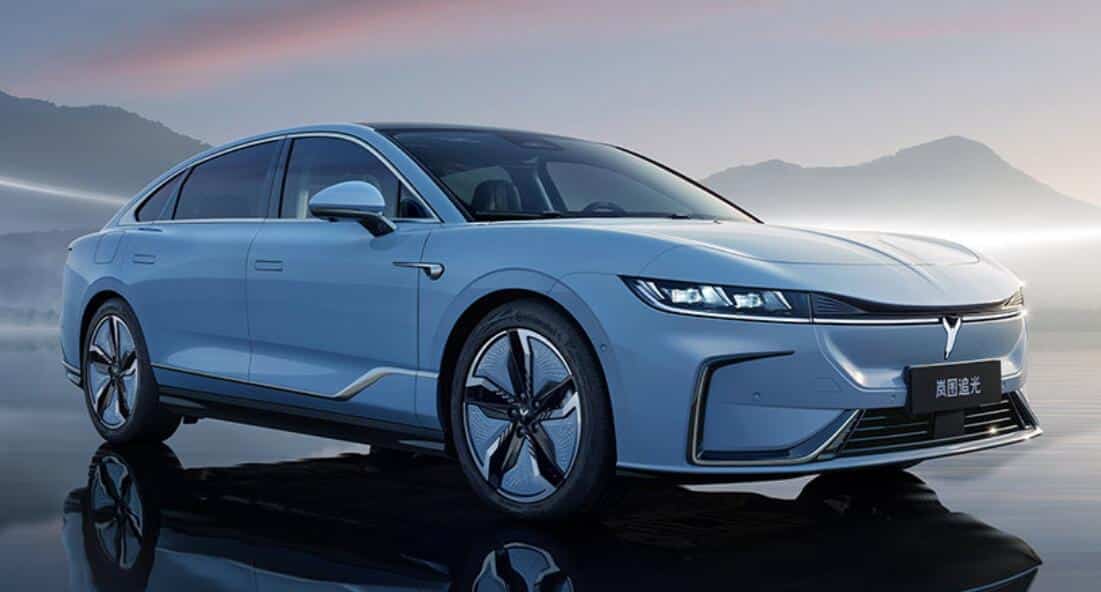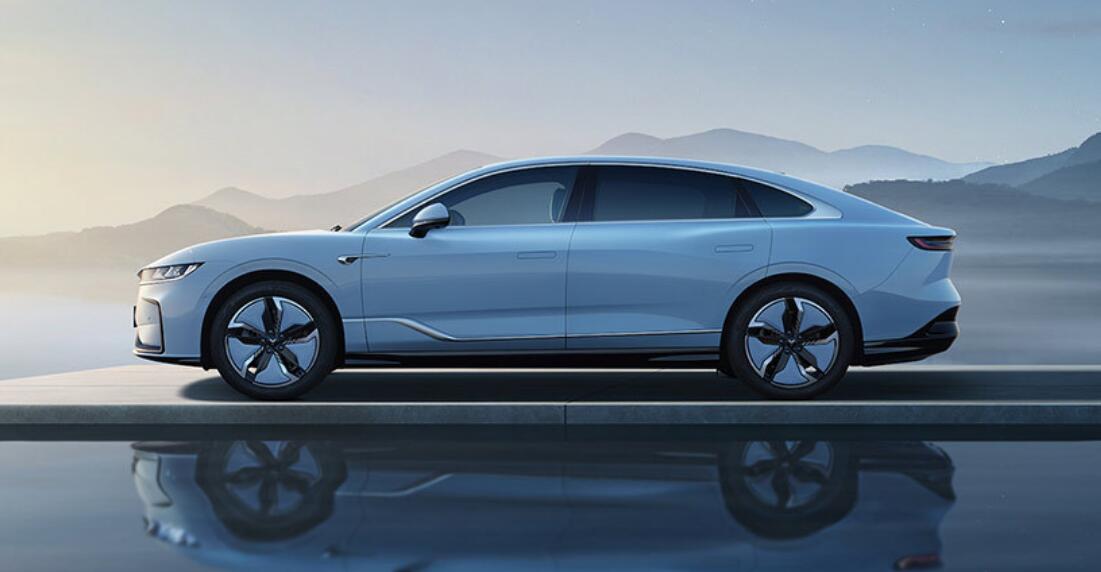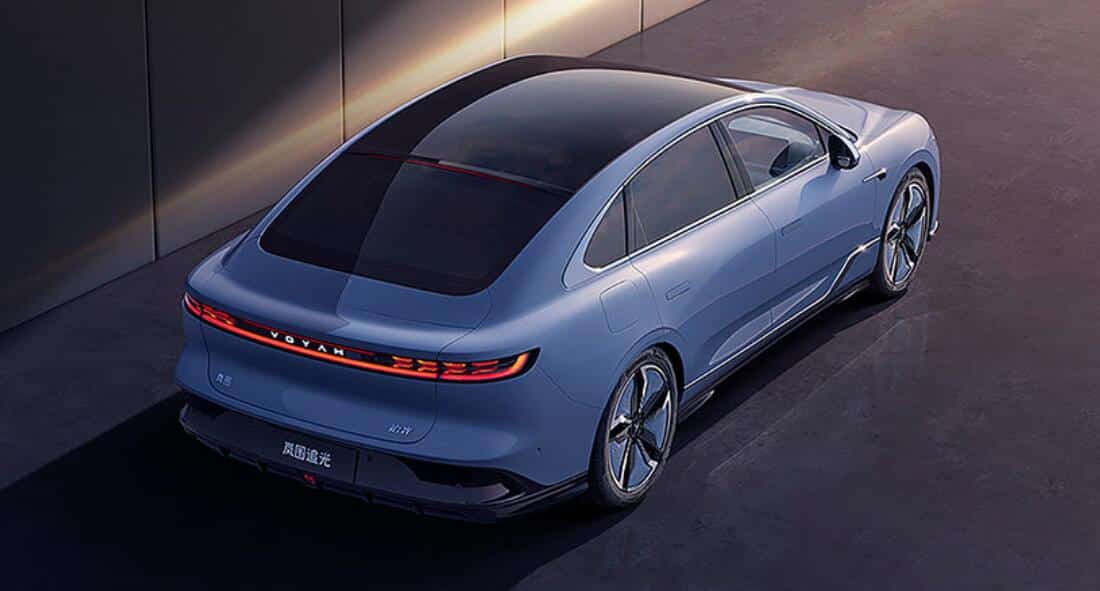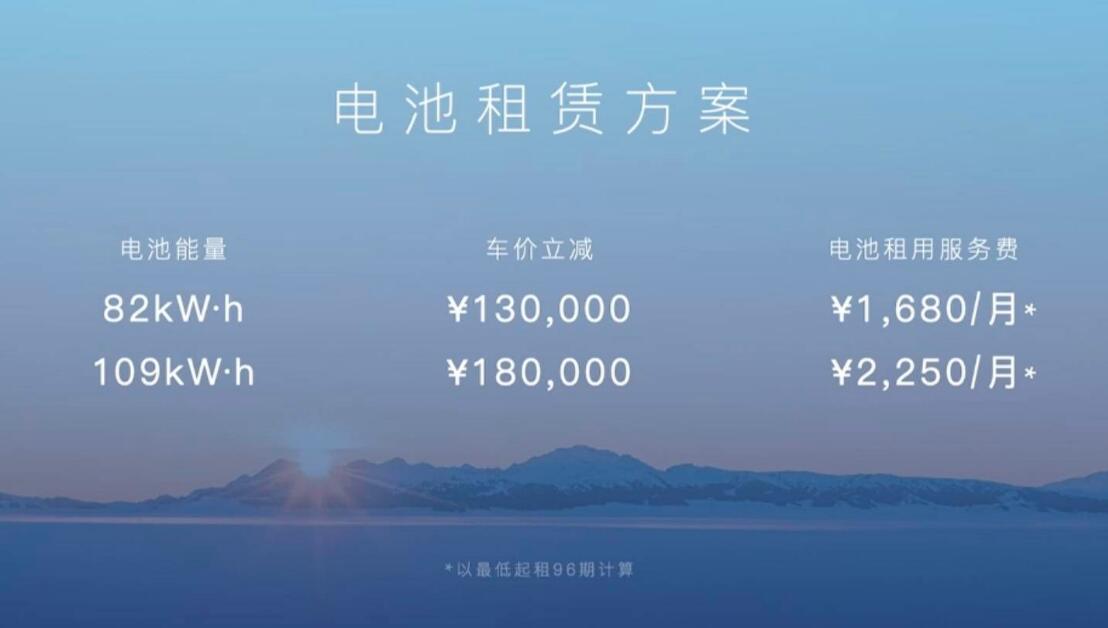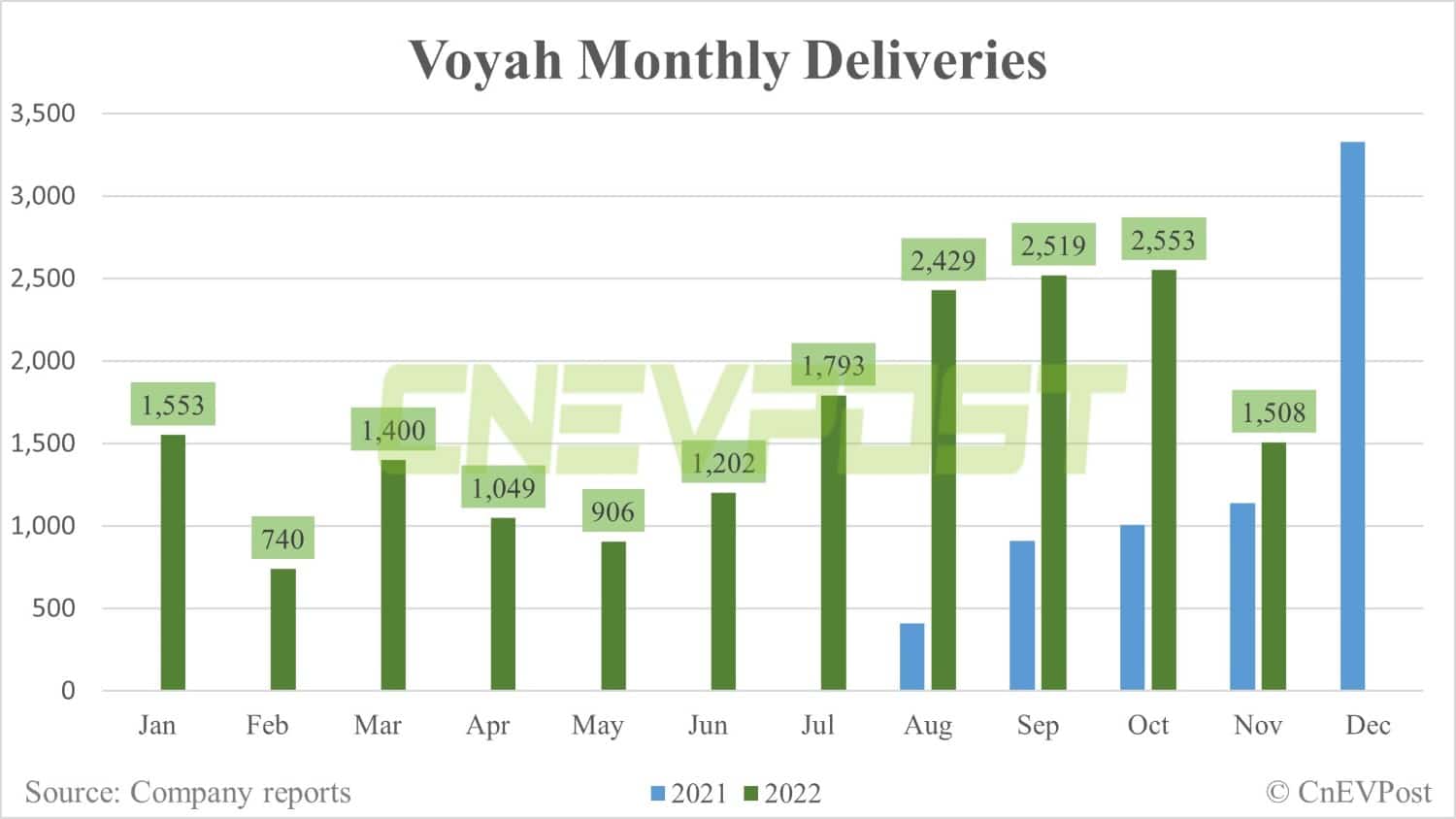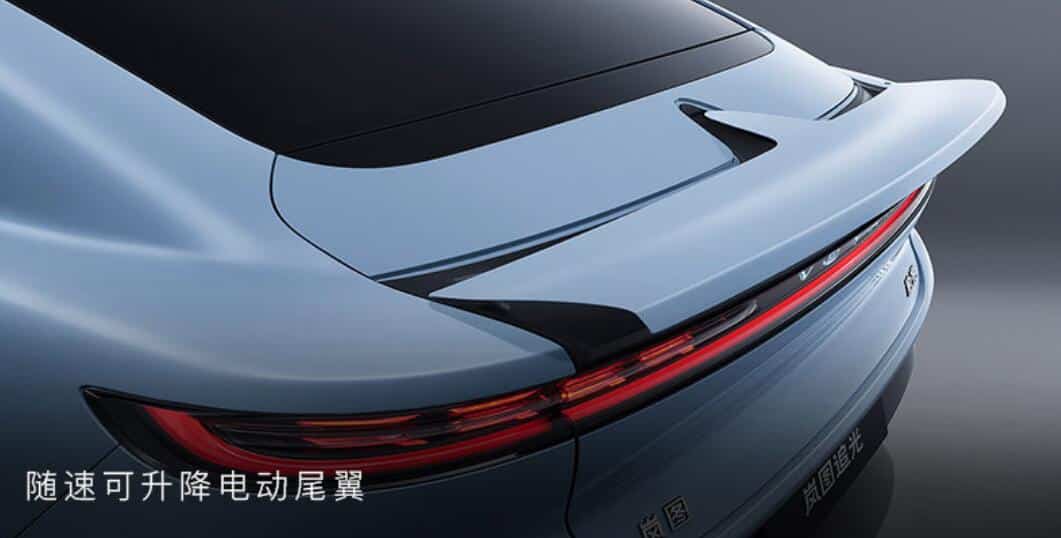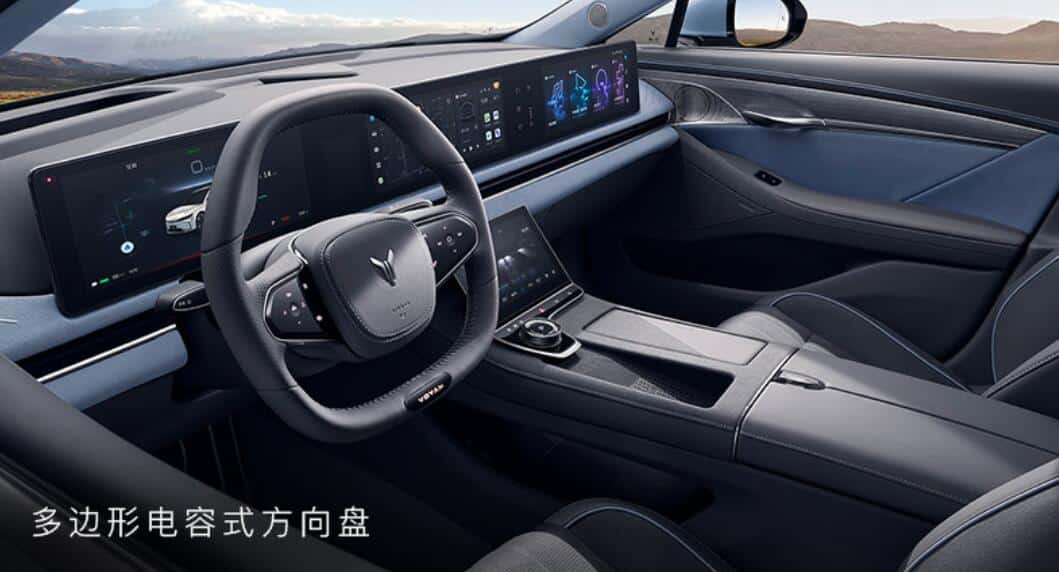Voyah's first sedan, while not as battery swap-enabled as the Nio ET7, offers similar selling points to Nio's model, including semi-solid-state batteries and battery leasing.
(Image credit: Voyah)
Voyah, the premium electric vehicle (EV) division of Dongfeng Motor, has unveiled its first sedan that will offer several of the selling points of Nio models, although it doesn't support battery swap like the latter.
Voyah introduced the sedan, called the Zhuiguang (literally, chasing light), at a launch event Thursday, after the model appeared on a regulatory filing list two months ago.
The car is a mid-to-large-sized sedan with a length, width and height of 5,088 mm, 1,970 mm and 1,505 mm, respectively, and a wheelbase of 3,000 mm.
At its launch event yesterday, Voyah announced that it is now accepting reservations for the model, with pre-sale starting prices of RMB 322,900 ($46,330), 352,900 and 432,900 for the three versions.
The three options are the standard version with an 82-kWh battery pack, as well as the flagship version, and the long-range flagship version with a 109-kWh battery pack. They are expected to go on sale and start deliveries in the first half of 2023.
Voyah is offering an Nio-like battery leasing program to consumers who purchase the model to lower the barrier to purchase, although the Zhuiguang does not support easy battery replacement.
The minimum battery lease period for this model starts at 96 terms. Consumers who choose the lease option can reduce the purchase price by RMB 130,000 for the 82-kWh pack version, with a monthly battery lease cost of RMB 1,680.
For the 109-kWh pack, the lease option reduces the purchase price by RMB 180,000 and the battery lease cost is RMB 2,250 per month.
For comparison, Nio's flagship sedan, the ET7, is currently available in two versions with starting prices of RMB 458,000 and RMB 536,000 before subsidies, respectively.
If consumers choose to purchase the car using Nio's battery rental program BaaS, the starting price is reduced by up to RMB 128,000 before subsidies and the monthly battery rental cost is up to RMB 1,680.
The Voyah Zhuiguang is equipped with dual motors, with the front motor producing a maximum of 160 kW and the rear motor producing a maximum of 215 kW.
The powertrain delivers 375 kW of maximum power and 730 Nm of maximum torque and can accelerate from 0 to 100 km/h in 3.8 seconds.
For comparison, the Nio ET7 has a maximum power of 180 kW at the front and 300 kW at the rear. It has 480 kW of maximum power and 850 Nm of peak torque.
Voyah claims that the 82-kWh battery pack in its sedan is the industry's first semi-solid-state battery pack. However, its CLTC range does not seem to be significantly improved compared to the regular battery pack, at only 580 km.
Its regular pack with a capacity of 109 kWh provides a CLTC range of 730 km.
Nio announced its 150-kWh semi-solid-state battery pack when it launched the ET7 on January 9, 2021, saying it could give the vehicle a range of more than 1,000 km. The company is the first in China to announce plans for mass-produced semi-solid-state battery packs.
Nio had planned to start delivering the pack in the fourth quarter of this year, but during a call with analysts on September 2 after the company announced its second-quarter earnings, William Li, the company's founder, chairman and CEO, said there would be a delay of several months in the delivery of the pack.
On November 22, Nio's semi-solid-state battery supplier, Beijing WeLion New Energy Technology, said it saw the first solid-state battery cell roll off the line at its production facility in Huzhou, Zhejiang province, eastern China.
Voyah is the electric vehicle brand announced by Dongfeng Motor in late 2020, when its first model, Voyah FREE, was also unveiled.
The Voyah FREE went on sale in China in June 2021, offering versions with extended-range technology as well as an all-electric version.
On May 7, Voyah's second model, the Dreamer MPV, was launched with a starting price of about RMB 369,900. Deliveries of the model began on July 16.
Notably, Voyah's performance in the Chinese EV market was modest, with deliveries of 1,508 units in November, up 32.39 percent year-on-year and down 40.9 percent from October.
From January to November, Voyah delivered a total of 17,680 vehicles.
